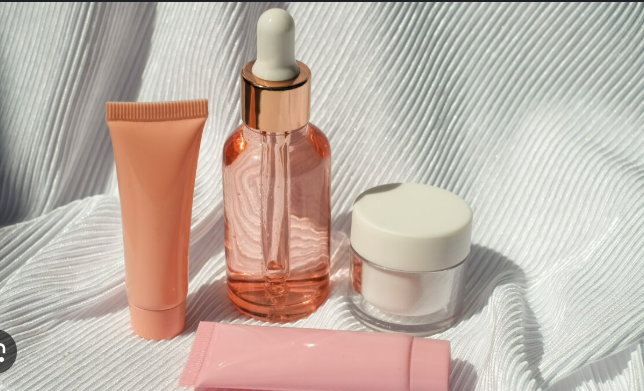
Introduction to Skincare Myths
Welcome to the world of skincare, where glowing complexions and clear skin are often overshadowed by a cloud of myths. We’ve all heard them: expensive products guarantee flawless skin, oily skin doesn’t need hydration, and sunscreen is only for beach days. These misconceptions can lead us down the wrong path in our quest for healthy skin.
But fear not! It’s time to separate fact from fiction. By debunking these common skincare myths, you’ll empower yourself with knowledge that transforms your routine into an effective plan tailored just for you. Let’s dive in and uncover what you really need to know about taking care of your skin!
Skincare is a topic that sparks endless conversations. With countless products, routines, and advice floating around, it’s no wonder people feel confused. Among the mountains of information are myths that can mislead even the most diligent skincare enthusiasts.
Have you ever heard that oily skin doesn’t need moisturizer? Or perhaps you’ve been told that natural ingredients are always better? These statements sound credible but often lack evidence. It’s time to cut through the noise and get to the truth behind popular skincare misconceptions.
Join us as we debunk some common skincare myths and uncover what you really need to know for healthy, glowing skin. Let’s separate fact from fiction!
Expensive Products are Always Better
Many believe that high price tags guarantee top-notch results. This isn’t always the case.
The beauty industry can be deceptive, with premium brands often charging more for their name than for quality ingredients. Just because a product costs a fortune doesn’t mean it will suit your skin type or concerns.
While some pricier options may contain advanced formulations, many affordable products are equally effective. Drugstore brands have made significant strides in recent years, offering formulas that rival luxury counterparts without breaking the bank.
Ingredients should take precedence over packaging and marketing hype. Always prioritize what’s inside rather than how much it costs or whether it’s trendy.
Assessing how well a product works for you is far more important than its price tag. Skincare effectiveness comes down to personal experience and ingredient compatibility, not just expensive branding.
Oily Skin Doesn’t Need Moisturizer
Many people believe that oily skin doesn’t require moisturizer. This is a common misconception. In reality, all skin types need hydration.
When your skin produces excess oil, it’s often a response to dehydration. If you skip the moisturizer, your skin may overcompensate by creating even more oil. This can lead to clogged pores and breakouts.
Choosing the right moisturizer is key for those with oily skin. Look for lightweight, non-comedogenic formulas that won’t block pores but still provide essential moisture.
Ingredients like hyaluronic acid or gel-based moisturizers can hydrate without adding extra grease. It’s about balancing hydration and controlling shine rather than skipping out on moisture altogether.
Understanding this crucial aspect of skincare helps maintain healthy, balanced skin while preventing issues down the road.
Sunscreen is Only Necessary on Sunny Days
Many believe sunscreen is only needed when the sun shines bright. This misconception can lead to serious skin damage.
Ultraviolet (UV) rays penetrate clouds, meaning you’re not safe indoors or on overcast days. Even in winter, UV exposure remains a risk. The danger isn’t just from direct sunlight; reflection off surfaces like water and snow amplifies those rays.
Applying sunscreen daily protects your skin year-round. A broad-spectrum formula shields against both UVA and UVB rays, which contribute to aging and skin cancer.
Make it part of your morning routine, regardless of the weather forecast. Opt for products with at least SPF 30 for optimal protection. Remember that harmful rays do not take breaks—they are lurking even when it feels chilly or gloomy outside. Your skin deserves consistent care every day of the year.
Natural/ DIY Skincare is Always Safe and Effective
Natural and DIY skincare often gets a glowing reputation. Many believe that just because something is “natural,” it’s inherently safe. However, this isn’t always the case.
Ingredients like essential oils can cause irritation or allergic reactions for some people. Just because something comes from nature doesn’t mean it’s gentle on all skin types.
DIY recipes may lack preservatives, making them prone to bacteria growth if not used promptly. This could lead to more harm than good for your skin.
Effectiveness also varies widely among natural ingredients. While honey might work wonders for one person’s acne, it could worsen another’s condition.
Before jumping into the DIY trend, research thoroughly and consider patch testing new concoctions on a small area of your skin first. Balancing enthusiasm with caution is crucial in any skincare journey.
The Importance of Consulting a Dermatologist
When it comes to skincare, consulting a dermatologist can be a game-changer. These professionals are equipped with the knowledge and experience needed to address specific skin concerns.
Self-diagnosing or following trends might lead you astray. A dermatologist can pinpoint issues like acne, hyperpigmentation, or eczema accurately. This tailored approach saves time and effort in trial-and-error methods.
Moreover, they stay updated on the latest treatments and products that suit your unique skin type. What works for one person may not work for another; this personalized guidance is invaluable.
Regular check-ups also help catch potential problems early. Skin cancer screenings are essential for everyone but particularly crucial if you have a family history of skin conditions.
Investing time in professional consultations ensures your skincare routine is effective and safe, aligning perfectly with your individual needs.
When it comes to skincare, navigating the sea of information can be overwhelming. With so many products and advice available, it’s easy to believe everything you hear. That’s why consulting a dermatologist is crucial.
Dermatologists are trained professionals with specialized knowledge about skin health. They can assess your unique skin type and condition, offering personalized recommendations tailored just for you. This level of expertise goes beyond generic advice found online or from friends.
Skincare isn’t one-size-fits-all; what works for one person might not work for another. A dermatologist can help decipher your specific needs, whether that’s addressing acne, signs of aging, or sensitivity issues.
Moreover, they stay updated on the latest research and treatments in dermatology. Their insights into groundbreaking therapies or emerging ingredients could significantly benefit your routine.
So next time you’re unsure about a product choice or experience an unexpected skin issue, consider reaching out to a qualified expert. Your skin deserves professional attention rather than relying solely on myths or trends circulating the internet. Making informed choices will lead you toward healthier and happier skin in the long run.
Tips for Finding the Right Skincare Routine
Finding the right skincare routine can feel overwhelming, especially with so many myths and misconceptions out there. However, a tailored approach is essential for achieving healthy skin.
First, assess your skin type. Knowing whether you have oily, dry, combination or sensitive skin will guide your product choices significantly. Next, consider your specific concerns—acne, aging or hyperpigmentation? Targeted treatments can help.
Start simple. A basic routine often consists of a cleanser, moisturizer and sunscreen during the day. Gradually introduce new products one at a time to gauge how your skin reacts.
Don’t shy away from seeking professional advice if you’re unsure about what works best for you. A dermatologist can provide personalized recommendations that take into account any underlying conditions you might have.
Listen to your skin! If something irritates it or doesn’t seem effective after consistent use over several weeks, don’t hesitate to switch things up. Your skincare journey should be an evolving process that focuses on what makes you feel confident and comfortable in your own skin.























